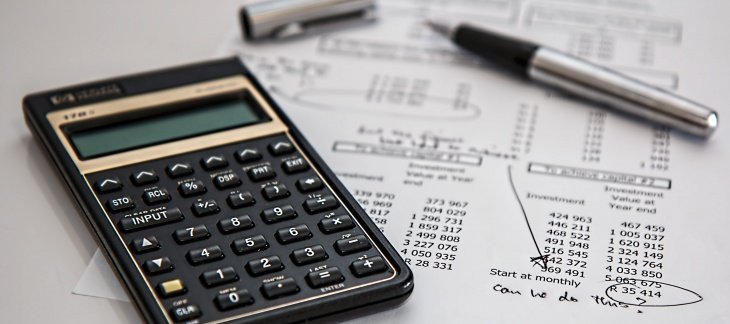The deadline for filing the 2023/24 tax return is fast approaching. The deadline for filing a paper tax return is 31 October 2024 and that for filing the tax return online is 31 January 2025. Due to the freezing of various reliefs and allowances or their reduction and global movement of internationally mobile employees, a growing number of individuals who never had to file a tax return before, are now required to file a self-assessment tax return.
Although, there is a lot of information available online about when an individual is required to file a tax return, there is still confusion among many taxpayers whether a tax return is required under certain circumstances. In this article, we will endeavour to answer some common questions to help taxpayers have a clear understanding of their tax return filing duties.
-
Question: Do I need to file a tax return if I received untaxed income or capital gains during the tax year, but HMRC have not asked me to file a tax return.
Answer: It is taxpayers’ responsibility to ensure that any untaxed income or capital gains are reported to HMRC, and the correct amount of tax is paid on it. Therefore, even if HMRC do not ask you to file a tax return, depending on your personal circumstances, you may be required to file a tax return. If you are required to file a tax return, but you are not registered to file a self-assessment tax return, you must notify HMRC by 5 October following the end of the tax year. Therefore, the self-assessment registration deadline for the 2023/24 tax year is 5 October 2024. Should you need our help with the registration, please feel free to contact us.
-
Question: My income for the 2023/24 tax year is below my personal allowance of £12,570. Do I need to file a tax return?
Answer: This is a general misconception that if your income for the tax year is below your personal allowance, you won’t have a tax liability and therefore, a tax return is not required. Below is a general criterion to determine whether a tax return is required even though the income is below the personal allowance.
- you are self-employed (unless this income, before expenses, is within the annual £1,000 trading allowance)
- you are a partner in a business
- you have property income exceeding certain limits. You can read more about the self-assessment criteria for property income on our page Reporting property income
- you want to claim tax relief on employment expenses over £2,500 in a year
- you have capital gains tax to pay which hasn’t already been paid in-year
- you are a minister of religion – any faith or denomination
- you receive income from a trust or estate of a deceased person and further tax is due
- you receive foreign income (unless this is only dividend income and this, together with any UK dividend income, is less than the annual dividend allowance)
- you need to make a claim for relief under a double tax agreement, or a claim for the remittance basis (where it does not apply automatically)
- you are non-UK resident, and you have taxable income in the UK
- you have income from UK savings and investments of £10,000 or more (excluding those held in an ISA)
- You have income from UK dividends of £10,000 or more (excluding those held in an ISA)
- you have any other untaxed income of £2,500 or more
- you need to pay the high income child benefit charge
You can use HMRC’s tool to determine whether you need to file a tax return.
-
Question: I am resident in the UK, but I receive foreign income and make capital gains which are already taxed in the other country. I don’t bring these funds to the UK. Do I need to file a tax return in the UK and report my foreign income and gains in the UK?
Answer: Another general misconception is that if your foreign income or capital gains are taxed in the other country (mostly your home country), you do not need to report such income and gains in the UK and pay tax on them. The correct and default position is that if you are resident in the UK, your worldwide income and gains are taxable in the UK. This is however subject to the double tax relief and double tax treaty between the UK and the other country which ensures that you are not taxed twice on the same source. For non-UK domiciled taxpayers, there might be other options available. This area of taxation is complex; however, as cross border tax experts we can help you navigate your UK tax compliance requirements.
-
Question: HMRC have sent me a notice to file a tax return, but I don’t have any income or capital gains to report. Shall I file a nil return?
Answer: If you do not have any income or capital gains to report for a tax year, you can contact HMRC on 0300 200 3310 and request them to cancel your tax return for the tax year.
-
Question: I am not resident in the UK, but I have UK income to report. Can I use HMRC online software to file my tax return?
Answer: No, non-UK resident individuals cannot use HMRC online software to file a tax return because it doesn’t have a capability of including the residence pages on the tax return. Non-UK resident individuals should therefore file a return on paper or alternatively use a commercial software to file their return. We can help non-UK residents to file their UK return.
-
Question: Do I need to file a tax return if I am retired?
Answer: As long as you meet the criteria for filing a self-assessment tax return, regardless of your age or employment status, you are required to file a tax return.
-
Question: I am a full-time student; do I need to file a tax return?
Answer: As long as you meet the criteria for filing a self-assessment tax return, Regardless of your age, the type of your work you do and your nationality, you will need to file a tax return.
-
Question: My spouse who doesn’t have any other income solely owns a rental property, but I receive 100% income from the property in our joint bank account. Can I report the rental income on my tax return?
Answer: No, your spouse will need to report the rental income on their tax return. The fact that the rental income is paid into a joint bank account is irrelevant.
-
Question: I own 75% share of a rental property, and my wife owns the remaining 25% of the share. Do we need to report our respective share of rental income on each of our tax returns?
Answer: In case of a married couple, regardless of the share in the property, each spouse needs to report 50% rental income on their tax return. However, an irrevocable and joint election can be made by both the spouses to receive the rental income in line with their share in the property.
-
Question: How can Spherical Accountants help me with my UK self-assessment tax return?
Answer: At Spherical Accountants we combine our knowledge and experience to help private clients i.e., individuals and their families with their income tax, capital gains tax and inheritance tax advisory and compliance needs. We are known for our expertise in taxation of individuals including property taxes, cross-border taxation and income from trusts and estates. However, each client requirements are different, and we would be happy to discuss your unique requirements with you. Please click here to book a FREE telephone call to discuss your requirements. Alternatively, get in touch via email at info@sphericalaccountants.co.uk or by calling our offices on 020 7859 4047.





